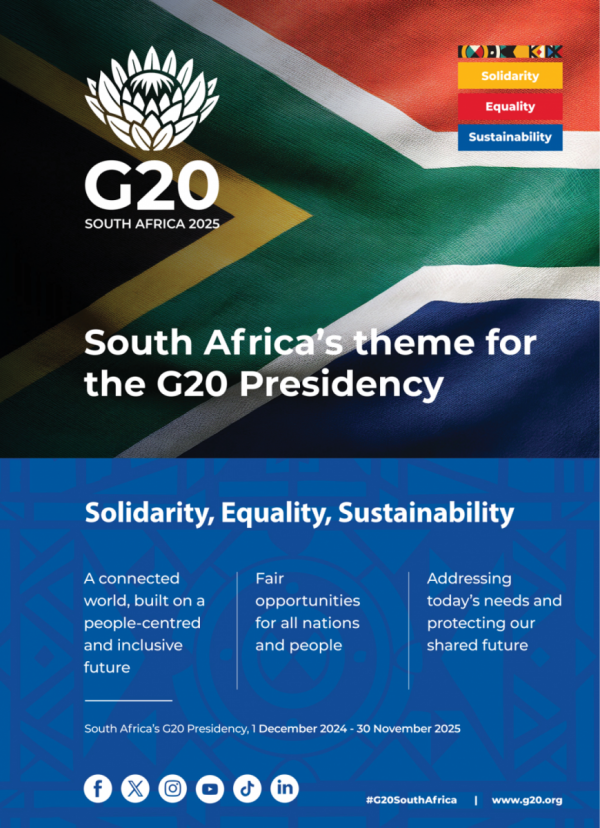
South Africa's G20 Presidency, a first for Africa, will focus on showcasing the continent's potential to drive global growth with ambitious goals. The objectives – which were outlined by President Cyril Ramaphosa at the recent World Economic Forum (WEF) in Davos, Switzerland – range from tackling climate change and mobilising finance, building disaster resilience, and green industrialisation and critical minerals, to strengthening Africa’s economic prospects, advancing health and technology, as well as positioning South Africa as a global collaborator.
South Africa is expected to focus its presidency on the three themes of solidarity, equality, and sustainability.
The G20 was founded in 1999 after the Asian financial crisis of 1997–1998 as an informal forum for finance ministers and central bank governors of the most important industrialised and developing economies to discuss international economic and financial stability.
The group comprises countries such as Argentina, Australia, Brazil, Canada, China, France, Germany, India, Indonesia, Italy, Japan, Republic of Korea, Mexico, Russia, Saudi Arabia, South Africa, Türkiye, United Kingdom, and the United States of America (USA), as well as two regional bodies, the European Union and African Union.
Combined, the countries represent around 85% of the global Gross Domestic Product, over 75% of global trade, and about two-thirds of the world’s population.
South Africa’s Presidency will culminate in a two-day summit set to be held in Johannesburg from 22–23 November, when the country will pass the baton to the USA.
Brazil held the Presidency in 2024.
Speaking at the WEF, President Ramaphosa said the G20 plays an important role in shaping and strengthening global architecture and governance on major international economic issues.
“As a leading forum for international economic cooperation, the G20 plays an important role in shaping and strengthening global architecture and governance on major international economic issues.”
He described the summit being held on African soil for the first time as a moment of great significance for South Africa, the African continent, and the world.
“Cooperation has been one of the key markers of human development, touching on many aspects of life, from survival and social organisation to technological and cultural progress, which is what the G20 was established for: to foster cooperation to deal with the challenges the world faces. Cooperation is the bedrock of human civilisation,” President Ramaphosa concluded.

 Facebook
Facebook Twitter
Twitter WhatsApp
WhatsApp